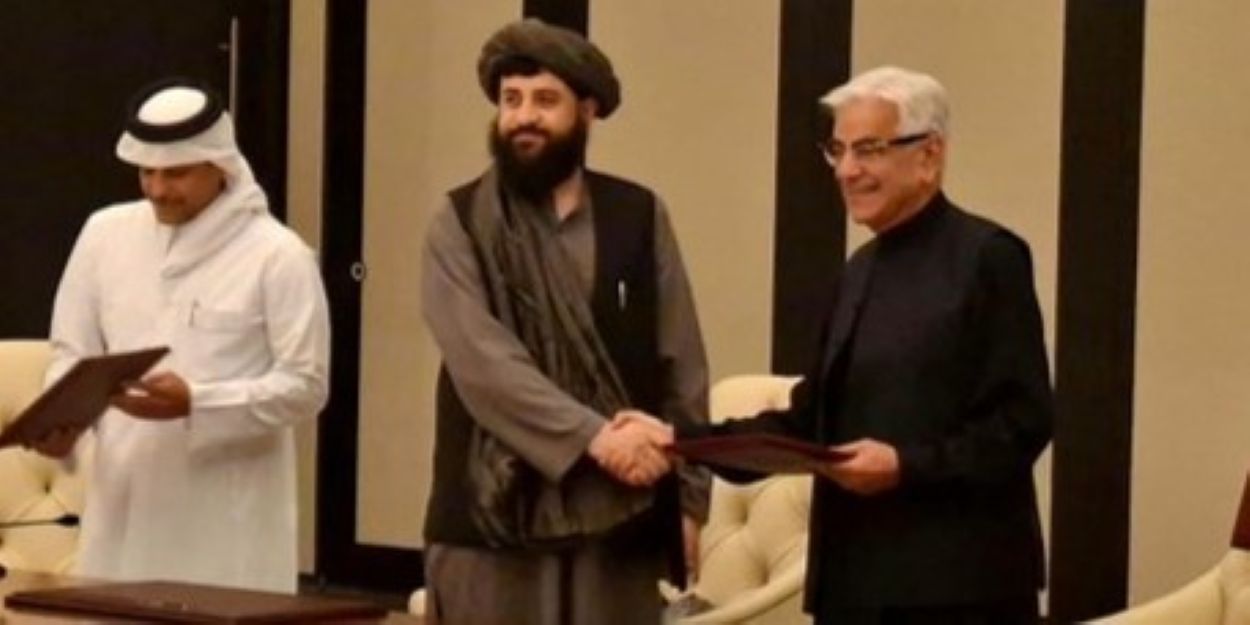Pakistan and the Afghan Taliban regime have formally agreed to uphold a ceasefire. This follows a fresh round of negotiations in Istanbul, according to a joint statement released by mediators on Thursday.
The agreement, facilitated by Turkey and Qatar, includes the establishment of a monitoring and verification mechanism to ensure peace. It will impose penalties on any party that violates the terms. Further implementation details will be finalised at a principal-level meeting. This meeting is scheduled for November 6, 2025, in Istanbul.
Pakistani officials welcomed the development while emphasising key security demands. Information Minister Attaullah Tarar stated, “[We] hope terrorist actions will no longer take place,” and reiterated that the Taliban regime must prevent its territory from being used for attacks against Pakistan.
He confirmed that the ceasefire agreement includes Taliban operations against militant groups, referred to as “Fitna al-Khawarij.” He also stated that Pakistan will have a new forum to present evidence of cross-border terrorism.
Joint Statement on the Talks Between Afghanistan and Pakistan Through the Mediation of Türkiye and Qatar https://t.co/y1SH30i88Q pic.twitter.com/wH4GW3SC9k
— Turkish MFA (@MFATurkiye) October 30, 2025Minister of State for Interior Talal Chaudhry issued a pointed warning, stating that the Taliban “must not become a proxy for India.” Such an alignment could compromise Kabul’s sovereignty. He described the ceasefire extension as a victory for Pakistan’s principled stance.
Read: Pakistan, Afghanistan Agree on Immediate Ceasefire After Doha Talks
The Istanbul talks represent a renewed effort to build on a temporary ceasefire agreed upon in Doha in mid-October. This diplomatic engagement follows a period of heightened tensions. There had been cross-border clashes on October 12 that resulted in significant casualties on both sides.
Statement | Meetings in Istanbul to Consolidate the Ceasefire Agreement Between Afghanistan and Pakistan Mediated by Qatar and Türkiye#MOFAQatar pic.twitter.com/dDbRGn0etC
— Ministry of Foreign Affairs – Qatar (@MofaQatar_EN) October 30, 2025Previous talks had stalled after the Taliban delegation refused to provide verifiable guarantees. These guarantees involved assurances that militant groups like the Tehreek-e-Taliban Pakistan (TTP) would not use Afghan soil to launch attacks into Pakistan.
While Defence Minister Khawaja Muhammad Asif noted that a breakthrough had yet to be achieved, the latest agreement signals a cautious step forward. He affirmed that Pakistan would respond decisively to any attempts to destabilise the country but welcomed a positive role from Kabul.
The establishment of a monitoring mechanism marks a concrete step toward de-escalation. However, its effectiveness will depend on the commitment of both parties in the coming weeks.






